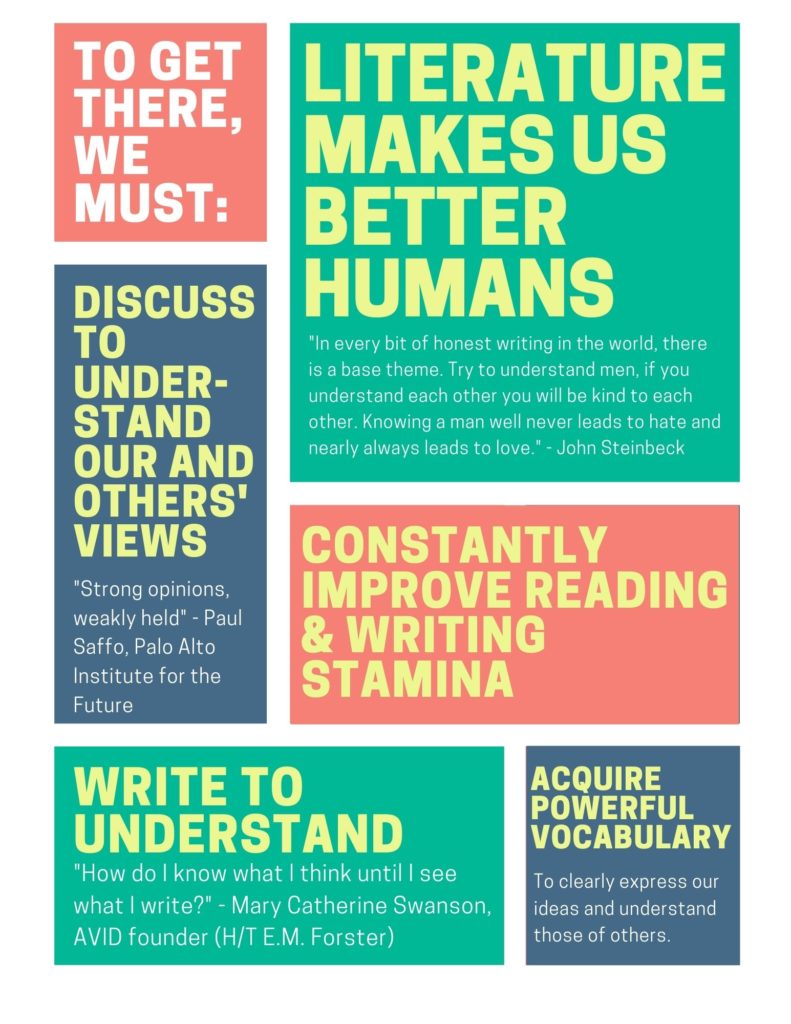To me, the most valuable parts of TEACH Week, SSU’s orientation week for the secondary teaching credential program, was Jack Kornfeld’s talk, “Discovering Your Narrative of Teaching.” As part of his presentation, he walked us through his changing narratives of teaching so we could see how his concept of it had changed over the years. I found that so interesting, so I’ve decided to keep the various iterations of my Educational Philosophy here.
Educational Manifesto, December 2020
For more explanation, read my post about the inspiration for and genesis of this manifesto.
Educational Philosophy, May 2020
This is very challenging to write during the coronavirus. My main takeaways from distance learning in the spring are that students respond most to instruction that is engaging, diverse, and connected to the world around them.
Educational Philosophy, April 2016
My husband and I have vastly different approaches to learning: he wants to be self-directed and abhors the traditional classroom, I love the traditional classroom and learn best in an organized, structured environment. Through him, I have learned to be far more flexible with the “how” of teaching. Yet we both agree on the end result: education should teach people to think for themselves and help them become not just better students, but better human beings.
I was fortunate to learn the value of critical thinking by my parents and my teachers. My high school teachers, in particular, taught me how to question the information I received and to push past the easy answers to find deeper meaning. Yet in addition to questioning information and ideas they receive, students must be invited to question and to assess their own beliefs as well.
Writing and reading literature helped me navigate my adolescence and begin to genuinely understand the world around me and how I fit into it. First literature and then nonfiction were my windows into the world and into the minds and motivations of people. They helped teach me empathy. As John Steinbeck wrote, “In every bit of honest writing in the world … there is a base theme. Try to understand men, if you understand each other you will be kind to each other.”
When students read good writing and explore their ideas in their own writing, it can help them not only navigate adolescence, but also begin seeing where they fit in the larger world. After all, that is a big part of a student’s personal journey in junior high and high school: transitioning from a pre-adolescent to an adult. I believe that a well-thought-out English curriculum can help usher students through this transition.
